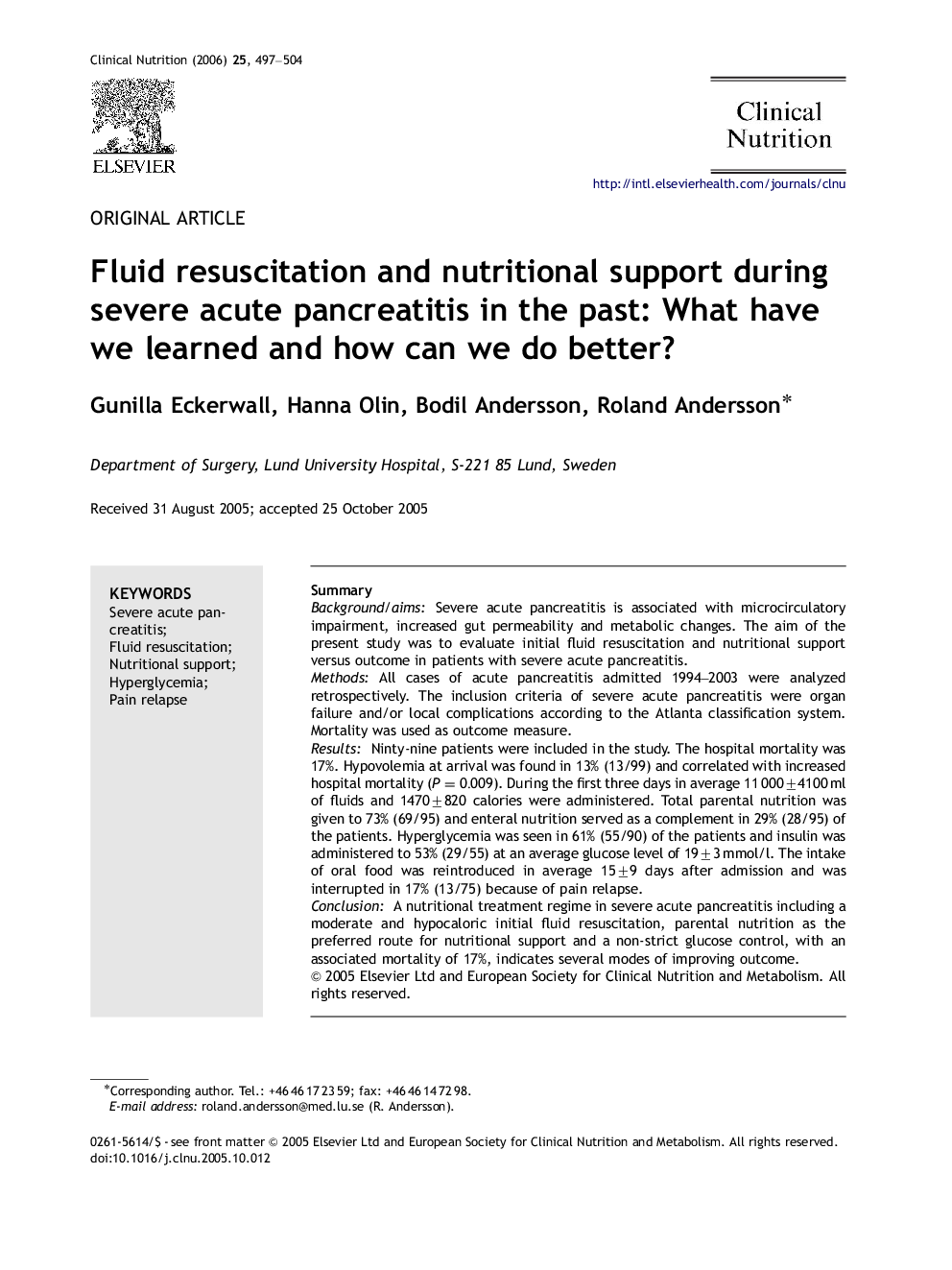| Article ID | Journal | Published Year | Pages | File Type |
|---|---|---|---|---|
| 2684551 | Clinical Nutrition | 2006 | 8 Pages |
SummaryBackground/aimsSevere acute pancreatitis is associated with microcirculatory impairment, increased gut permeability and metabolic changes. The aim of the present study was to evaluate initial fluid resuscitation and nutritional support versus outcome in patients with severe acute pancreatitis.MethodsAll cases of acute pancreatitis admitted 1994–2003 were analyzed retrospectively. The inclusion criteria of severe acute pancreatitis were organ failure and/or local complications according to the Atlanta classification system. Mortality was used as outcome measure.ResultsNinty-nine patients were included in the study. The hospital mortality was 17%. Hypovolemia at arrival was found in 13% (13/99) and correlated with increased hospital mortality (P=0.009P=0.009). During the first three days in average 11 000±4100 ml of fluids and 1470±820 calories were administered. Total parental nutrition was given to 73% (69/95) and enteral nutrition served as a complement in 29% (28/95) of the patients. Hyperglycemia was seen in 61% (55/90) of the patients and insulin was administered to 53% (29/55) at an average glucose level of 19±3 mmol/l. The intake of oral food was reintroduced in average 15±9 days after admission and was interrupted in 17% (13/75) because of pain relapse.ConclusionA nutritional treatment regime in severe acute pancreatitis including a moderate and hypocaloric initial fluid resuscitation, parental nutrition as the preferred route for nutritional support and a non-strict glucose control, with an associated mortality of 17%, indicates several modes of improving outcome.
